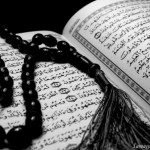This is Day 25 of the #30Days30Writers 2016 Ramadan series.
By Kabir Helminski
Ramadan has so many dimensions: purification, sacrifice, community, the still and subtle emptiness of the heart. It reorients us in so many ways. Ramadan is less something that we do, than a force field we enter and are transformed by.
But it does take intention and effort on our part. If we can, we participate in the fast. Perhaps we also find other intentions, new aspects of awareness that become part of this sacred time.
Ramadan is a shock in many ways. It may affect our own schedules, so it’s a shock in time. It’s a shock in the consumption of food and drink. It also opens us to the possibility of a much deeper spiritual practice. And, to me the biggest shock of Ramadan always has to do with the sense of spiritual possibility that it brings.
One of the most insidious attributes of the nafs, our lower self, is its complacency. We live our lives in such a way that all too often we are saying, “There’s a certain amount of spiritual practice I’ll agree to … a certain amount of spirituality is okay in my life, but it’s measured, shall I even say ungenerous … How willing are we to free ourselves of the compulsive need to satisfy our own nafs? How devoted are we to the possibility of really becoming what we’re destined to be?
And yet, perhaps we have accustomed ourselves to serving our nafs more than we serve anything else.
Imagine, if there were a mobile app that could analyze our behavior and our thoughts and come out with a reading like: Today’s results 94 percent nafs, six percent spirituality. Bravo! I used to be 0.005 percent. Now it’s up to six percent, and I’ve consciously been on this path for how many years? But meanwhile 94 percent of my time is spent serving and satisfying my own ego. “Yes sir, nafs, you have your way most of the time! Just allow me my six percent.”

Ramadan is a time to begin noticing the subtle coercions we surrender ourselves to. There are some things we habitually give our attention to that drain us or reduce our spiritual attunement, things that we take for granted as aspects of modern life: self-image, the media, entertainment, the internet, material consumption.
If we pay careful attention to the state that is created as a result of our communing with these influences and how much time we give to them, we might learn something important.
Conversely, if we pay attention to the state we experience when we turn toward trusted spiritual sources, we may begin to discern a significant difference. Some things drain us, and some things replenish us. Ramadan is a time to notice what we give our attention to, what energizes us, in contrast to what drains us of joy, love, peace, hope.
To loosely paraphrase Mevlana Rumi: In Ramadan we learn there is a surprising sweetness in an empty stomach, as if we were a fine musical instrument, God’s lute. We understand that when the sound box is full of food, the music is muffled, but when emptied by the fire of fasting, beautiful melodies emerge.
With fasting the nervous system is energetically purified and new energy begins to live your life. When you’re full and every desire has been satisfied, your nafs sits where your spirit should. You become your own idol. But when you fast virtues and strengths gather like friends wanting to help.
Unless you fast you will never see Jesus’ table, set for a feast with foods more subtle than kebabs. Fasting is magic, like Solomon’s ring, don’t sell it cheaply, or you will never see the armies of love gathered on the horizon, pennants flying above them.
Kabir Helminski is a Shaikh of the Mevlevi Order of Sufis. He and his wife Camille founded and now direct The Threshold Society, a nonprofit educational foundation that has developed programs to provide a structure for practice and study within Sufism and spiritual psychology. He has translated many volumes of Sufi literature, including the works of Rumi, and is the author of two books on Sufism. He is the editor of The Living Tradition, a blog on Patheos Muslim.















